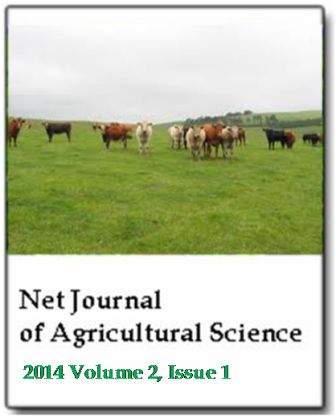Cultivating knowledge on seed systems and seed strategies: Case of the rice crop
Amadou Moustapha Bèye and Marco C. S. WopereisNet Journal of Agricultural Science
Published: January 7 2014
Volume 2, Issue 1
Pages 11-29
Abstract
This review gives key information about seed systems with the objective of helping countries in sub-Saharan Africa (SSA) to design appropriate strategies based on their own local realities. It starts with an in-depth assessment of the rice seed sector and emphasizes the factors that can influence its development. These factors may be associated with the biological characteristics of the rice crop, the complexity of farming systems, the policy environment, and the markets. The historical background of the seed sector in SSA is described in order to give a clear picture of the different attempts to find solutions in different countries and sub-regions. Five major strategic models and several alternative seed strategies are identified. However, local traditional seed systems will remain the primary source of seed supply for the majority of farmers for many years to come. These systems are based on farmer-saved seed and farmer-to-farmer seed exchanges, which are efficient tools in seed dissemination and food security. It is time to recognize local traditional systems and their contribution to the maintenance of seed quality and crop diversity and to develop tools for their better utilization. The community-based seed system (CBSS) is proposed as such a tool. CBSS encourages technicians to recognize local traditional seed systems and to build integrated seed approaches that take into consideration local realities and the socio-cultural dimension of seed within African communities. This will likely require a transition period of 5 to 10 years to build the fundamentals of sustainable seed systems through the structuring of the seed sector and the creation of appropriate conditions to ensure food security, enriched biodiversity and sustainable production. With climate change, local traditional seed systems, as well as integrated seed approaches, will likely play a more important role to improve the performance of agricultural systems while ensuring farmer autonomy.
Keywords: Conventional seed system, local traditional seed systems, integrated seed systems, community-based seed system, seed industry.
Full Text PDF
